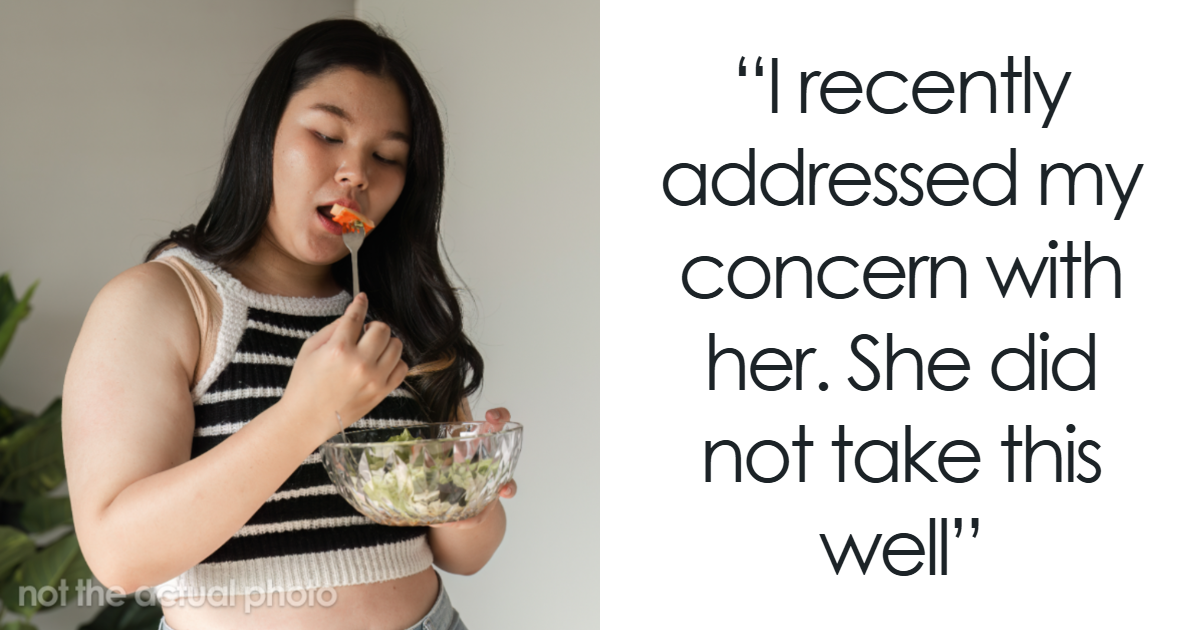Navigating the Complex Relationship Between Food and Emotions

Food is a fundamental aspect of our daily lives, intricately linked not only to our physical health but also to our mental well-being. Hence, nurturing a healthy relationship with food is essential. This relationship is defined by consuming nutritious foods that support our body and mind. Yet, the pursuit of this harmony can be overshadowed by various factors such as diet culture, the influence of social media, mental health challenges, and a host of other complex issues.
In a recent incident, a woman found herself in a difficult situation involving a close friend. She observed that her friend tended to visit her home primarily during moments of loneliness or stress, often consuming a considerable amount of her snacks and groceries. Concerned about her friends overeating habits and the strain it placed on her own budget, the woman chose to address the issue directly. Unfortunately, this conversation did not go as planned, leading to a quarrel between the two.
To gain deeper insights into this delicate issue, we spoke with Jenny Eden Berk, M.S.Ed., an eating psychology coach who provided valuable perspectives on how our relationship with food can become complicated. Berk emphasized that a healthy relationship with food is not solely determined by what we eat but is heavily influenced by our motivations and emotional states surrounding food.
According to Berk, many individuals do not find it easy to maintain a balanced relationship with food. She explains, Healthy eating habits are not merely about the types of food consumed; they are fundamentally tied to how and why we make our food choices. A healthy relationship is characterized by an intuitive approach, where individuals learn to listen to their bodies, respecting hunger and fullness cues rather than adhering to rigid dietary rules.
However, this intuitive approach can be elusive for many. Berk notes, An unbalanced or unhealthy relationship with food can manifest through various behavioral and psychological patterns, and not just specific eating habits. Some telltale signs include categorizing foods as good or bad, experiencing guilt after eating certain items, or even resorting to secretive eating. Other indicators consist of obsessive calorie counting, avoiding social gatherings that feature food, and feeling anxious or overwhelmed during meals. Physically, these unhealthy relationships can lead to weight cycling, though it is crucial to understand that disordered eating can affect individuals of all body types and is not always outwardly visible.
Numerous factors can contribute to the development of an unhealthy relationship with food. Berk points out that societal influences such as diet culture perpetuate unrealistic standards about body image and eating habits. Experiences in childhood, such as food being used as a tool for punishment or reward, can lay the groundwork for unhealthy eating behaviors, she elaborated. Additionally, parental behavior regarding dieting and body image can create subconscious eating patterns in children.
Moreover, traumatic experiences can lead individuals to use food as a means of coping, which can evolve into ingrained habits. Berk highlights physiological aspects, stating that restrictive dieting can trigger biological reactions that heighten the focus on food, fostering an unhealthy scarcity mindset that promotes the consumption of highly appealing foods. Furthermore, social circles that place a premium on appearance and diet discussions can exacerbate these vulnerabilities.
As Berk explains, the ramifications of an unhealthy relationship with food can severely disrupt ones quality of life and overall health. When food is a source of anxiety instead of nourishment, it affects everything from recognizing hunger and satiety to digestion and even your immune system, she warns. This distress can negatively impact relationships with friends and family, as those struggling with disordered eating may shy away from food-related social gatherings.
Over time, these unhealthy patterns can escalate into clinically diagnosed eating disorders, which rank among the mental health conditions with the highest mortality rates. Berk emphasizes, Even if someone does not meet clinical criteria, ongoing disrupted eating patterns can impair immune function, hormone regulation, and cognitive performance.
For family and friends who suspect a loved one may have an unhealthy relationship with food, Berk advises a gentle and informed approach. Before addressing any concerns, it is essential for loved ones to educate themselves about disordered eating and examine their own beliefs about food and body image, she suggests. When expressing their observations, it is important to focus on behaviors rather than comments about weight or appearance. Avoid accusatory language, and instead, offer support by suggesting professional resources or accompanying them to appointments. It is crucial to remain supportive, even if the person is resistant to change.
Re-establishing a healthy relationship with food requires effort and a compassionate approach to nourishment, rather than striving for perfection in eating habits. As Berk explains, This journey often involves digging into deeper beliefs about worth and control. Working with an eating coach and adopting mindful and intuitive eating practices can be beneficial. Being part of communities that embrace body diversity and reject diet culture can also provide healing during recovery. Research indicates that lasting improvement stems from developing internal awareness rather than adhering to external food rules.
As this story has circulated, reactions among readers have been mixed. Some commend the woman for addressing her concerns directly, while others feel her method was somewhat awkward and could have been handled differently.























